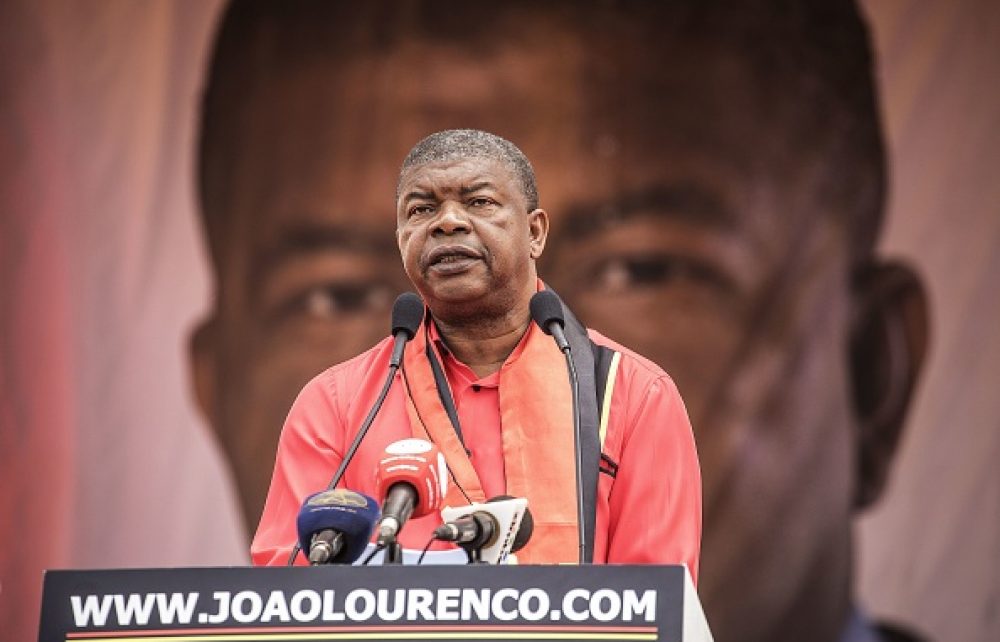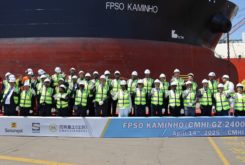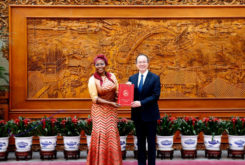While facing the biggest health and economic crisis in his mandate, Angolan president João Lourenço has decided to make changes in the Government and the Presidency, naming new ministers for Foreign Affairs and Defense. While a “rejuvenation” of the cabinet is clear, along with a reduction in the number of Government members, some of the appointments are generating controversy, especially that of an MPLA leader who was accused by the Prosecutor General of participating in a Thai-led scheme to embezzle state funds.
The new ministers took oath of office on April 8th. The shortening of the Government was among the first measures decided by Lourenço to respond to the economic crisis caused by the collapse of the oil price, the country´s main export product and source of foreign currency. With the merger of Ministries, the Government now has 21 ministers, 7 less than before.
Among the changes made by the Angolan president stand-out those in the Defense Ministry, where Salviano de Jesus Sequeira was replaced by his former secretary of State João Ernesto dos Santos, who will also be in charge of Veteran affairs; and at the Ministry of Foreign Affairs, where Tete António, also secretary of State until now, took over Manuel Domingos Augusto.
Victor Francisco dos Santos Fernandes will be in charge of Industry and Commerce, while António Francisco de Assis is taking over an enlarged Agriculture and Fisheries Ministry and Territorial Administration will be trusted to Marcy Cláudio Lopes, until now Secretary of the President of the Republic for Political, Constitutional and Parliamentary Affairs.
The former minister of Territorial Administration Adão Francisco Correia de Almeida will now work directly with the president as Chief of Staff, replacing Frederico Manuel dos Santos e Silva Cardoso.
Manuel Gomes da Conceição Homem, will take over an enlarged Ministry Telecommunications, Information Technologies and Social Communication, while Adjany da Silva Freitas Costa will be in charge of the Ministry of Culture, Tourism and Environment.
In the Government remain Diamantino Pedro Azevedo, as minister of Mineral Resources, Oil and Gas, and Manuel Tavares de Almeida, as minister for Public Works and Spatial Planning. The ministers of Economy, Finance, Health, among others, were not involved in the changes.
The new Government will have as secretaries of State for Agriculture and Livestock José Carlos Lopes da Silva Bettencourt, for Forests André de Jesus Moda, and for Fisheries Esperança Maria Eduardo Francisco da Costa.
Ivan Magalhães do Prado, will be Secretary of State for Industry, Amadeu de Jesus Alves Leitão Nunes will have the Trade folder, while Jânio da Rosa Corrêa Victor will be Secretary of State for Mineral Resources and José Alexandre Barroso, Secretary of State for Oil and Gas.
Carlos Alberto Gregório dos Santos, is the new Secretary of State for Public Works and Mário Augusto da Silva Oliveira will have the folder of Telecommunications and Information Technologies.
Ernesto Manuel Norberto Garcia was appointed to the position of Director of the Office of Psychological Action and Information of the Security Cabinet of the President of the Republic. Garcia was accused in 2018 of fraud by the Prosecutor General, for his role as former head of the Technical Private Investment Unit in a case known as “Thai fraud”, but was acquitted by the Supreme Court of Angola, in April 2019. In the past, he also served as MPLA central committee spokesman.
Angola’s economic forecasts are set to be reviewed, due to the drop in oil prices, caused by the coronavirus pandemic. Even before the new oil crisis, some analysts, including at the Economist Intelligence Unit, were warning of the possibility of a default by Angola on its foreign debt. According to the International Monetary Fund, the country’s debt is now around 111% of GDP, the highest level in its history.
Brent crude price has been trading at around 33o USD, half it’s value in January. Angola’s budget for 2020 is based on a price of USD 55 per barrel. Substantial cuts will be necessary by the Government to balance the budget. Not only will lower oil prices mean less revenue, and spending cuts, but investments in the energy sector, particularly by oil companies, will also be slashed.
Angola’s mining sector, the country’s second most important source for foreign exchange, has been showing signs of vitality. But almost all minerals have seen their price drop in the last few weeks (iron ore and copper the hardest hit). On the other hand, gold has seen its price soar, as investors seek a “safe refuge” their wealth.
Another risk for Angola is with the management of State debt: because an economic downturn will put the local currency, the kwanza, under further pressure against the US dollar, the country’s debt service (denominated in large part in USD) will grow exponentially.
In late March, Fitch lowered the rating for Angola to B- (positive outlook), reflecting the impact of lower oil production level and lower prices, together with a more significant than expected depreciation. The agency is particularly concerned about the impact of the weaker Kwanza on public debt. It also said that “solid” progress in the reforms supported by the IMF is not being sufficient to stem the deterioration in public finances and external accounts.
A recent report from the Natural Resource Governance Institute (NRGI), which examined 52 resource-backed loans made between 2004 and 2018, concluded that more than half the total amount of loans to Sub-Saharan African countries examined in the report came from China Development Bank and China Eximbank, with Angola topping the list (21.4 billion USD).
João Lourenço | © TV Livre Angola




